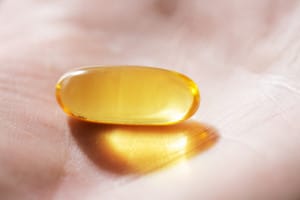 As a rule of thumb, whole foods are the best source of nutrition. In fact, health professionals often recommend consumers choose natural fruits and vegetables over multi-vitamin supplements. However, if you are going to take a multivitamin, please be sure that it is more of a whole food type supplement. Unfortunately, in today’s world it is difficult to get all the minerals and vitamins that we need because the earth has been so damaged by poor agricultural techniques. Higher quality vitamins will be easier to digest because they usually use better fillers unlike low cost “wholesale” vitamins where you have no idea what fillers are being used. It is usually the filler that causes the difficulty in absorption. Unlike multi-vitamins that can be hard to digest, all-natural foods provide essential vitamins, minerals, and other nutrients in a form that is easy for the body to utilize.
As a rule of thumb, whole foods are the best source of nutrition. In fact, health professionals often recommend consumers choose natural fruits and vegetables over multi-vitamin supplements. However, if you are going to take a multivitamin, please be sure that it is more of a whole food type supplement. Unfortunately, in today’s world it is difficult to get all the minerals and vitamins that we need because the earth has been so damaged by poor agricultural techniques. Higher quality vitamins will be easier to digest because they usually use better fillers unlike low cost “wholesale” vitamins where you have no idea what fillers are being used. It is usually the filler that causes the difficulty in absorption. Unlike multi-vitamins that can be hard to digest, all-natural foods provide essential vitamins, minerals, and other nutrients in a form that is easy for the body to utilize.
Every rule has an exception, however. When it comes to a balanced diet, fish oil is one nutrient that consumers may have no choice but to purchase in supplement form. This is because fish oil is essential in promoting holistic health and well being, yet the body does not naturally produce it. High quality fish oil supplements can also provide the optimal balance of essential oils (omega-3s and 6s), which is something that is lacking in most American diets.
From promoting cardiovascular health to helping to prevent cancer, medical professionals and researchers say fish oil can provide a wide variety of health benefits, including (i):
- Soothing asthma symptoms
- Preventing cancerous tumors / growths
- Reducing the risk of cardiovascular disease
- Reducing symptoms of attention deficit hyperactivity disorder (ADHD)
- Preventing and alleviating pains associated with rheumatoid arthritis
“All of these diseases have a common genesis in inflammation,” explains Dr. Joseph C. Maroon, vice chairman of the Department of Neurological Surgery at the University of Pittsburgh School of Medicine (ii). According to Dr. Maroon, the omega-3 fatty acids in fish oil supplements have the ability to prevent or treat a vast number of serious health conditions simply by preventing inflammation, or swelling.
A Note to Our Readers: Always consult a licensed health professional prior to making any changes in diet or exercise. Then, review the information below to better understand how to choose a fish oil product that will effectively supplement your diet with a good balance of essential fatty acids (EFAs) like omega-3s, omega-6s, and DHA.
How To Find a Well-Balanced Fish Oil Supplement
According to Dr. Julie McLaughlin, there are 3 main criteria that must be evaluated when shopping for a fish oil supplement: Form, ratio, and dosage.
Form: Choose a Re-esterfied Triglyceride (rTG)
The fish oil manufacturing process begins with pressing the fish and other ingredients into oil, called a triglyceride. Manufacturers then use an alcohol solution to remove heavy metals and other toxins from the oil. However, few manufacturers remove the alcohol solution prior to selling the supplement. To get the most natural form of fish oil available, Dr. McLaughlin recommends finding a re-esterfied triglyceride (rTG) supplement in which the alcohol component has been removed prior to packaging and sale (iii).
Ratio: Finding a Balance Between Omega-3s and 6s
Omega-3s and 6s should be consumed in a 2:1 ratio each day, according to Dr. Jeffrey Bost, clinical instructor in the Department of Neurosurgery at the University of Pittsburgh Medical Center (iv). Unfortunately, Americans tend to consume omega fatty acids in a ratio that is closer to 20:1, creating a serious imbalance that can actually promote inflammation rather than reduce it (v). To compensate, health professionals recommend fish oil supplements that maintain a 2:1 ratio of omega-6 and 3 fatty acids (this can be verified on the label). To ensure that balance is properly maintained, consumers are wise to limit the consumption of foods that are notoriously high in omega-6 fatty acids, such as:
- Corn-fed beef
- Mayonnaise
- Processed crackers
- Pre-packaged cookies
- Peanut butter (all-natural versions are okay, in moderation)
- Other high fat snack items like chips, doughnuts, and foods fried in vegetable oil.
Dosage: What’s the Most Effective Daily Dose?
According to the World Health Organization, it is safe and effective to consume 0.3 to 0.5 grams of fish oil each day (vi). When referencing the nutrition label, it is important to remember that manufacturers may list fish oil as 2 different forms of omega-3s: EPA and DHA. Under the supervision of a medical professional, consumers may take larger daily doses to treat specific conditions. Examples include (vii):
- Lupus: Recommended 2 grams, 3 times each day.
- Psoriasis: Recommended 2 grams, 3 times each day.
- Raynaud’s phenomenon: Recommended 1 gram, 4 times each day.
- Rheumatoid arthritis: No more than 2.6 grams, twice each day.
This special health report has been produced by Assure a Smile, South Florida’s Home of Holistic Dentistry. For more information, readers are invited to visit the URLs in the Sources section below. Readers may also schedule an appointment with a holistic Miami dentist online, or call our front desk directly at 305-274-0047.
Sources:
(i) “What to Know About Omega-3s and Fish.” Web MD. Accessed 8 March 2013.
(ii) See above.
(iii) “Don’t Skip a Beat with Fish Oil.” City Holistic Online. Accessed 8 March 2013.
(iv) “What to Know About Omega-3s and Fish.” Web MD. Accessed 8 March 2013.
(v) See above.
(vi) “Fish Oil Recommended Daily Intake.” Livestrong.com. Accessed 9 March 2013.
(vii) “Supplement Guide: Fish Oil.” Arthritis Today. Accessed 12 March 2013.



